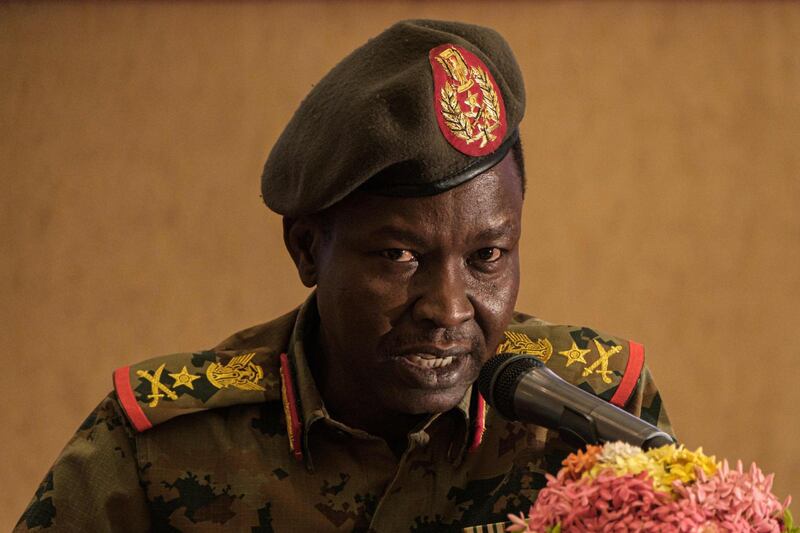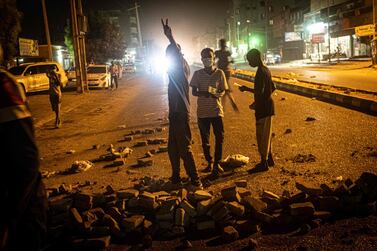Sudan’s ruling generals have rejected Ethiopian proposals to settle their dispute with protest leaders over who should rule the country until elections are held.
They also declared that agreements reached in earlier rounds of negotiations were void because circumstances had since changed.
The move by the generals, announced late on Sunday in the capital Khartoum, came a day after protest leaders said they had accepted the plan laid out by Ethiopian mediator Mahmoud Dardir.
The generals said they wanted the proposals to be integrated with those put forward by the African Union.
“We asked the mediators to unite their efforts and submit a joint paper as soon as possible to return the parties to negotiations,” Transitional Military Council member and spokesman Lt Gen Shams Al Deen Kabbashi said late on Saturday.
“The African Union’s initiative came first.”
Gen Kabbashi said the council had not studied the Ethiopian “unilateral” proposals.
Details of the African bloc’s plan have not been made public, but protest leaders said it was only slightly different from Addis Ababa’s proposal.
“We do not accept dictations from any country,” said another member of the council, Lt Gen Yasser Al Atta.
The rejection of the proposals was expected, with the Transitional Military Council showing growing intolerance for the protest leaders.
They questioned popular support for the Forces of Freedom and Change and accused it of trying to destabilise and divide the country.
Other political forces must be included in any negotiations, the generals said.
Their decision threw into deep uncertainty the political process for Sudan after the country’s authoritarian ruler of 30 years, Omar Al Bashir, was removed on April 11.
That followed four months of street protests orchestrated by the Association of Sudanese Professionals, a powerful faction in the Forces of Freedom and Change, which is an alliance of political parties and trade unions.
Negotiations with the military over the transfer of power to a civilian-led government began soon after Mr Al Bashir’s removal.
The sporadic talks yielded an agreement on a transitional period lasting three years, a civilian-led cabinet and a legislature in which the Forces of Freedom and Change would hold 200 of 300 seats.
The talks were deadlocked over the composition and leadership of a sovereign council to operate as a collective presidency, with both sides insisting on leadership and a majority of seats.
The Ethiopian proposals envisaged 14 seats divided equally between the generals and the Forces of Freedom and Change, with a 15th seat given to a civilian agreed on by both sides.
The talks collapsed on June 3 when security forces broke up a sit-in protest outside the headquarters of the Sudanese army in Khartoum.
The protest movement said more than 100 people were killed and is demanding an international investigation into the deaths.
The military insists that 61 died and says it is launching its own inquiry.
A senior member of the Forces of Freedom and Change, Mohammed Al Mahdi, said the military’s rejection of the Ethiopian plan laid divisions within the ruling council bare.
A faction in the military council did not want to hand over power, while others wanted to secure as much gain as possible for the military before surrendering power, Mr Al Mahdi told the daily newspaper Asharq Al Awsat
The council has threatened to name a caretaker government to run the country until elections are held next year if an agreement is not reached shortly.
The Forces of Freedom and Change, which organised two successful general strikes since June 3 that crippled most activities nationwide, has vowed a “strong confrontation” if the generals make good on their threat.
Sudan, a religiously and ethnically diverse nation of about 40 million people, has been ruled by the military for most of its 63 years since independence.
Its three spells of democratic rule – from 1956 to 1958, 1964 to 1969 and 1986 to 1989 – all ended in military coups.







